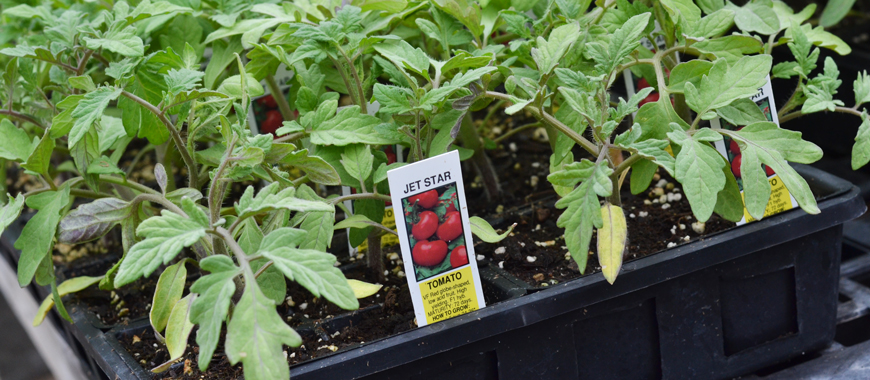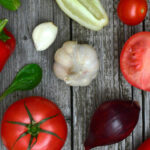New to vegetable gardening and not sure where to start? Don’t fret, vegetable gardening can be a very rewarding hobby! The best initial advice we can give you is don’t get carried away! Looking at the seed catalogs and walking down the greenhouse aisle, can get you excited to grow many new types of plants, and in quantities enough to feed a county, but is that really what you want? Overplanting your garden will create a headache of plants growing into each other, and will overwhelm you when it is time to harvest. So, slow down, plan diligently, plant what you will actually eat, and don’t get overwhelmed!
Garden Size
How big is your garden going to be? We suggest having an accurate, to-scale map of your garden that will allow you to space out all of your plants correctly, so you don’t overplant your space. Remember, if you are a family of 4 and not planning on preserving your harvest, do you really need a 40×50 garden? Plan reasonably so you are not wasting important time, resources, and yard space. When planning out the layout of your crops, keep in mind some plants do not like to be by each other. Root plants like carrots and radish, can be by each other or even interplanted with each other as have different germination and growth times that would benefit each other. Plant cucumbers and melons together since they both require more water and have the same planting time. Keep in mind to not plant onions near beans and peas, and potatoes do not like tomatoes and cucumbers. Tomatoes should also not be planted near corn. Looking ahead to next year, you will want to make sure you rotate where your crops are from previous years to decrease repeated disease issues!
Tilling
Tilling your garden before planting is a double-edged sword. While tilling will aerate the soil, it can dry out the soil faster making it ready to be planted earlier in the spring and make a nice and smooth planting bed, leaving it as no-till will allow for natural drainage, retains water and will be a benefit to earthworm populations which is important in aeration. No matter which decision you make, you should always be working with a cleared piece of ground, with no leftover plants remaining from last year.
Fertilization
Fertilization should occur at the beginning of the season and supplemental fertilization should occur throughout the season. A general application of fertilizer applied as a broadcast before planting begins is an easy way to make sure all plants are getting the important first boost of nutrients. We like to use Espoma Garden Food as our base fertilizer. As the season progresses we will use either a liquid fertilizer to supplement or use another application of Espoma Garden food in late June/early July. The liquid fertilizers that we can’t live without are Jack’s Tomato FeED, Fertilome Gardener’s Special and All Purpose Plant Food. Supplementing with liquid fertilizer should take place after you have seen several new leaves growing on your plants and should be done every 14-21 days depending on the type of plant being fertilized.
Vegetable care
Some vegetable plants should have special care given when planting and throughout the season. For instance, when planting tomatoes and peppers apply the granular amendments of calcium nitrate or bone meal to help aid in the prevention of blossom end rot. We also suggest applying Fertilome Yield Booster when those plants start to flower as that will also help in preventing it. Cucumbers can also become bitter in dry conditions. Make sure they are watered well, and fertilizer is applied to these crops to help prevent it.
Watering
Watering your garden is extremely important. On average your garden needs 1” of water every week, however, some crops may need more than that. Either water your garden by soaking your garden, or by overhead watering. Watering should always be done in the early morning, or early evening. Never allow your plants to go into the night with wet leaves, as that is the prime time for disease formation. Watering should be done deeply and infrequently. This means water so the water is going deep into the profile but does so infrequently to allow the soil to dry and promote deep root growth. Watering shallow will not allow the roots to grow deep.
Protection
Throughout the season, scouting for weeds and diseases is important. While you can spray for insects after you see them, unfortunately, once you see most diseases it is too late to cure them. Being on a rotation of Bonide Copper Fungicide, Fertilome Triple Action Plus or Fertilome Broad Spectrum are all great preventative measures in controlling diseases.
Good luck with your vegetable planting endeavors. Remember to have fun, this is a hobby, you should enjoy it!



